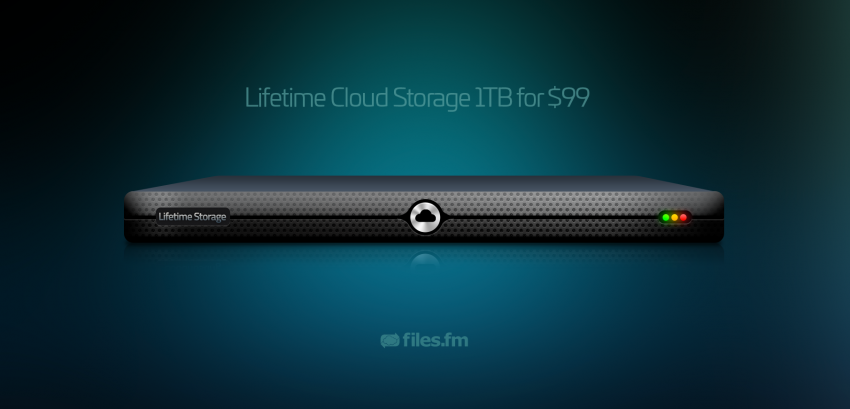First of all, any backup solution is better than none. If your idea of a safe and modern backup is a USB stick or uploading your files to your e-mail, good for you! The most important thing is to use as many ways and devices as possible.
However, if you want to make your backups regular, easy-to-search and more useful, you might need to choose between an external hard drive and file hosting service. The best option is to choose both. If that’s too bothersome, here is a comparison between different aspects of both possibilities:
Price
Today, external drives are the cheapest they’ve ever been. If we look at simple price-per-gigabyte metrics, external drives will always be cheaper than online cloud storage. This means: if you need a lot of constant storage space, such as keeping your accounting records, external hard drive might be a better deal.
However, the difference is not particularly dramatic: 1 TB external hard drive on Amazon costs around 65 dollars. We at Files.fm offer 1 TB of lifetime storage space for 99 dollars.
Scalability
The price aspect depends on your perspective. 1 TB of information is a lot. If you don’t need 1000 GB immediately, an advantage of cloud storage is the possibility to increase your storage space as you go. You can pay for 250 GB today, and then increase the amount as soon as you fill it up. Physical storage devices don’t offer this flexibility. If your backups exceed the available space, you have to buy an additional device and manage between two separate devices or throw the old one out and buy a new, larger hard drive.
Security
A lot of consideration needs to be taken into account when you decide which option is more secure. With external hard drive, you are in control of your data — you can control where it is physically located, who is accessing the device and how well it is protected against outside environment.
With cloud storage, you entrust your files to a service provider, which ensures the files are not damaged or hacked. Cloud storage offers more protection, as the data cannot be destroyed by daily clumsiness or a rogue malware attack. Most cloud service providers encrypt their data, which offers extra safety. It is important to note that nobody at cloud service provider office can see you photos — the information is saved without anyone looking at the data.
If you want to feel in control of your data, an external hard drive might be your best bet. If you choose a trusted service provider and trust them with your data, cloud storage might be safer because of…
Endurance
External hard drives, the same as any physical storage device, tend to break — whether from use, non-use or external conditions, such as fires, floods, or angry toddlers. Cloud service providers have servers that are regularly cleaned, maintained and kept in pristine condition to ensure that no data is lost. This means that keeping your data on cloud is much safer in the long run.
Flexibility
Cloud storage solutions are more flexible, as you can access your data from any place with an internet connection. You can access your hard drive only when you have it physically with you — but you don’t need internet to get to your data, which is a plus outside territories with reliable internet speed.
Overall, the biggest question when choosing a place to back up your files is this: are you willing to entrust your information to a third party to ensure that it is safer and better protected? If you are, here are some more benefits to saving your data on cloud.
